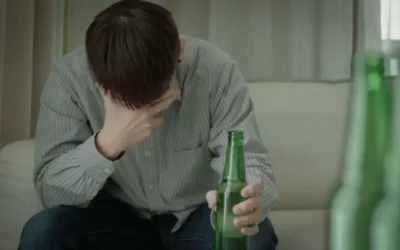Content
Alcohol has been shown to negatively impact sleep, but this comes down to the individual. Consuming alcohol and experiencing restricted sleep reduces alertness during the day. Alcohol can increase the quantity of non-REM sleep during the first half of the night, but it decreases REM sleep in the second half. Ultimately, no two cases of insomnia are the same, and no treatment plan is right for everyone. Anyone experiencing insomnia should speak with a doctor to learn more about what treatments may work best for them.

There are also some relapse-prevention medications that can help promote sleep. Our science-backed approach boasts 95% of patients reporting no withdrawal symptoms at 7 days. If you or a loved one are suffering from Insomnia that you believe is tied to an alcohol use disorder, then your problem is likely more severe than you realize. Insomnia can be easily treated for most and, if it is caught early enough, completely avoided before any permanent damage has taken hold.
When to See a Healthcare Provider
Insomnia appears to have a complex relationship with heavy drinking. On the other hand, heavy drinking may contribute to insomnia symptoms. When you drink alcohol, the effects on your airways can also lead to an increase in snoring. Heavy drinking—defined as five or more drinks per day on five or more days in the past month—is linked to chronic sleep problems. But even occasional moderate drinking can disrupt circadian rhythms and interfere with your sleep. Research estimates more than 130 million adults in the United States drink alcohol each month.
Alcohol may help many fall asleep on occasion; however, the use of alcohol, even a single serving, will make it more difficult for someone to reach deep sleep, also known as REM sleep. Without deep sleep, our mind and body are unable to do what’s necessary to prepare for the next day. Though alcohol may help you fall https://ecosoberhouse.com/ asleep faster, it can disrupt the important REM stage of your sleep cycle, leading to lack of sleep or sleep disorders like insomnia. Small amounts of alcohol may cause short-term sleep disturbances, but frequent and large quantities of alcohol consumption may lead to chronic insomnia for certain individuals.
How Do Alcohol and Exercise Affect Sleep?
Sleep deprivation due to alcohol consumption can exacerbate performance impairment and daytime sleepiness. People with sleep apnea should consider avoiding or reducing alcohol consumption. A person can speak with a doctor to discuss the best way to treat and manage their condition.
But while alcohol might help you fall asleep faster, that’s the extent of its sleep-related benefits. Sleep apnea is a common disorder that causes breathing to repeatedly stop and why does alcohol cause insomnia restart during sleep, affecting the amount of oxygen your body gets. Individuals with sleep apnea often snore, gasp for air while asleep and wake frequently throughout the night.
Why Does Alcohol Make You Pee So Much?
Individuals who have attention deficit hyperactivity disorder (ADHD) are also particularly affected by insomnia. A 2020 study found that people with ADHD are more likely to consume alcohol to treat their insomnia symptoms. For example, people may experience steroid-induced insomnia, or antidepressants may worsen or induce sleep disorders.
Ultimately, alcohol can decrease the amount and quality of sleep you get. Sleep apnea is a common disorder where the airway collapses or becomes blocked during sleep. They may turn to alcohol to reduce their anxiety symptoms, which also increases insomnia, exacerbating their anxious feelings. Consuming alcohol may present a higher risk of developing sleep apnea. In a 2018 study, researchers found that alcohol increases this risk by 25%.
Participants reported the number of days on which they had “four or more drinks on one occasion” in the prior three months. Responses were used to calculate the mean number of binge drinking days per week, which was the primary predictor. Participants also reported the frequency of difficulty falling asleep, trouble staying asleep, waking too early or feeling unrested in the morning.
Why can’t I sleep if I drink alcohol?
That's because alcohol disrupts what's known as your sleep architecture, the normal phases of deeper and lighter sleep we go through every night. A night of drinking can “fragment,” or interrupt, these patterns, experts say, and you may wake up several times as you ricochet through the usual stages of sleep.
These people can benefit from continuing with sleep medication or seeking cognitive-behavioral therapies for insomnia, which have been shown to be effective at improving sleep quality in recovery. Suboxone (buprenorphine/naloxone) is indicated for the treatment of opioid dependence in adults. Suboxone should not be taken by individuals who have been shown to be hypersensitive to buprenorphine or naloxone as serious adverse reactions, including anaphylactic shock, have been reported. Taking Suboxone (buprenorphine/naloxone) with other opioid medicines, benzodiazepines, alcohol, or other central nervous system depressants can cause breathing problems that can lead to coma and death.


コメント